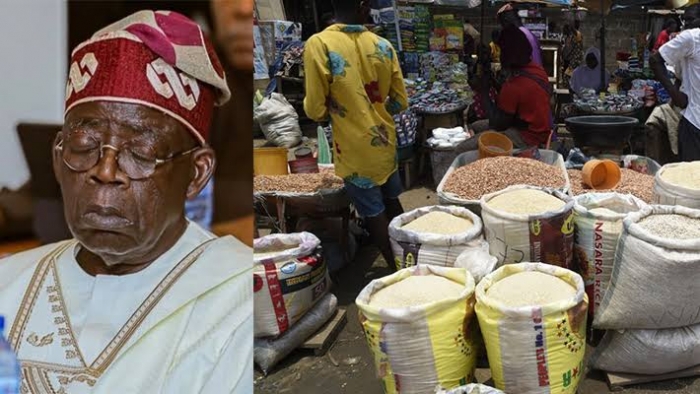As Nigeria grapples with alarming hunger and poverty levels highlighted by the World Bank and other international institutions, a new report has exposed the staggering rise in food prices since President Bola Tinubu assumed office in May 2023 — underscoring the worsening plight of millions of Nigerians.
The report, released on Wednesday by Connected Development (CODE), revealed that the prices of key staples such as beans, rice, yam, maize, and garri have more than doubled in the past two years. Sourced from National Bureau of Statistics (NBS) data, the 2024 Annual Report titled “The Year of Active Citizen” paints a bleak picture of soaring inflation, vanishing food affordability, and mounting hardship.
According to the report, the price of white beans — a vital protein source for poor households — has skyrocketed by 272.84%, rising from ₦622 to ₦2,319 per derica between May 2023 and May 2025. Local rice, another dietary staple, rose by 139.94%, from ₦1,387 to ₦3,328 per derica. Yam prices have jumped by 204.5%, now selling at ₦1,151 per tuber, up from ₦378. White maize grain increased by 192.7%, from ₦318 to ₦930.79, while garri climbed by 130.54%, from ₦2,129 to ₦4,908.
These hikes come amid a broader economic crisis marked by currency freefall, fuel subsidy removal, and the ripple effects of global supply shocks — all of which have pushed more Nigerians below the poverty line. Recent World Bank assessments warned that more than 104 million Nigerians are at risk of food insecurity, with child malnutrition on the rise and household consumption collapsing under the weight of inflation.
What was once a daily meal for the average family is fast becoming unaffordable, even for the working class. Beans and garri, once considered “foods of the poor,” are now luxury items in many homes. In some regions, families have been forced to cut meals to one per day, or resort to nutritionally inferior substitutes.
CODE’s report highlights not just the collapse of purchasing power, but also the erosion of dignity in daily survival. “We tracked market prices to provide evidence-based data on the cost of living. The numbers speak for themselves — Nigerians are facing a full-blown food crisis,” the report noted.
While government officials tout reforms and long-term economic strategies, the statistics reveal a population sinking deeper into poverty with little immediate relief. For many Nigerians, the problem is no longer about economic growth projections — it’s about eating today.
As hunger tightens its grip across the country, the report underscores a critical warning: unless urgent and targeted interventions are made — including food security policies, price stabilization efforts, and direct support to vulnerable households — the human cost of Nigeria’s economic transition may prove catastrophic.
